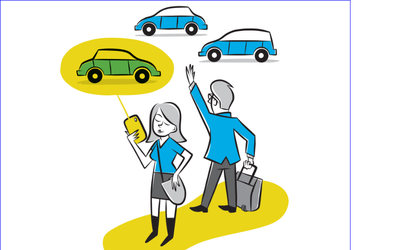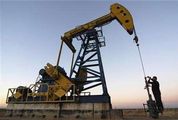Carpooling effective for congestion and even employee productivity
by Emily Chasan,
2016-03-13 16:58:39.0
NEW YORK — Companies don’t always think about the emissions created by their employees commuting, says Ann Fandozzi, a former auto executive who is chief executive officer of carpooling appRide. The recently launched app has investments from a TPG Capital fund and has partnered with U2 frontman Bono.
She spoke with Bloomberg Brief Sustainable Finance Editor Emily Chasan about how encouraging carpooling among employees can affect emissions, congestion and even employee productivity. Comments have been edited and condensed.
What does Ride do and what problem is it trying to solve?
A: It’s a harrowing experience to get to work in this country. In the US alone 110-million people commute alone in their cars every single day, twice a day. In 2015 alone, Americans spent 2.6 million years, just stuck in traffic. There are 276-million tons of carbon emissions created by the commute. And yet we do it every single day. When you think about other areas of your life, we use technology to optimise, but in the commute we do it the same way over and over and over again.
At Ride, we approach large companies and they approach us. When they sign up, we ask their employees where they live and what are the normal hours and days of the week when they go to work. We have a technology we spent two years developing that matches people along their way to work. We bill the passenger on behalf of the driver so that they can share cost and put it into the driver’s account. For employees, it tallies the savings and sustainability impact they had as an individual, and then we aggregate that for the employer so they can see how much they saved on emissions, money and time.
Investors say they are thinking more about the environmental impacts of corporate supply chains.
Do you think carpooling fits into that conversation?
A: This is absolutely part of a company’s supply chain. It’s part of the people workforce and how they get there. For most companies you just need people to be there and you don’t think about how.
For more progressive companies that want to take action on the climate you have to think about all the externalities associated with running a business.
Do you think carpooling is a material issue for companies?
A:I believe it is the single-biggest material emissions driver for companies. When you think about a carpool and you put two people together — you literally halve your impact on the environment. Companies have all sorts of internal sustainability goals, but they are also starting to have mandated sustainability goals based on where they reside. Some cities and townships have clean air requirements and they are starting to have congestion requirements.
Where has employee travel been in the sustainability conversation?
A: At most companies it is not even on the table. The most progressive companies have tried to take it into account, but candidly, there just hasn’t been a very good solution for them, so it hasn’t risen to the forefront. When you think about using alternative materials in a supply chain, they could be cost prohibitive, but at least they are readily available so they can make that action happen. Employers for decades have been trying to incentivise people to ride share. It’s been out there, but with no real teeth and no technology to make it happen.
How do you talk to companies about carpooling?
A: Sustainability is a piece of a much bigger puzzle. It’s like giving your employees a raise. At a time when employers are scrounging for pennies, that’s critical. We also talk about giving people hundreds of hours back. If people are catching up on e-mails during their commute, then they’re not doing that when they get to work. Usually they are actually working while they are part of a carpool because they’ve got all this extra time on their hands and they may as well get a jump on things. There’s a huge productivity play to it. Then you add to that, that it helps you meet your sustainability initiatives. It helps you reduce your carbon footprint, it helps you get rid of unnecessary parking spaces because you just have less need for them. Sustainability can also be a perk. More and more employers are fighting for talent so they have to put something out there that says this is how they differentiate.
What are some of the challenges ahead?
A: We’re launching here with plans to go overseas shortly, but Americans sharing the commute, or sharing anything really, is not necessarily in our nature. It’s more easily understood in other cultures. I would say our biggest challenge is a behavior shift. That’s where companies can play a role. At the end of the day people are going to work twice a day, every day, so employers can have a huge role in making a difference.
This Q& A originally ran in Bloomberg Brief: Sustainable Finance.
Bloomberg

Picture: ISTOCK
NEW YORK — Companies don’t always think about the emissions created by their employees commuting, says Ann Fandozzi, a former auto executive who is chief executive officer of carpooling appRide. The recently launched app has investments from a TPG Capital fund and has partnered with U2 frontman Bono.
She spoke with Bloomberg Brief Sustainable Finance Editor Emily Chasan about how encouraging carpooling among employees can affect emissions, congestion and even employee productivity. Comments have been edited and condensed.
What does Ride do and what problem is it trying to solve?
A: It’s a harrowing experience to get to work in this country. In the US alone 110-million people commute alone in their cars every single day, twice a day. In 2015 alone, Americans spent 2.6 million years, just stuck in traffic. There are 276-million tons of carbon emissions created by the commute. And yet we do it every single day. When you think about other areas of your life, we use technology to optimise, but in the commute we do it the same way over and over and over again.
At Ride, we approach large companies and they approach us. When they sign up, we ask their employees where they live and what are the normal hours and days of the week when they go to work. We have a technology we spent two years developing that matches people along their way to work. We bill the passenger on behalf of the driver so that they can share cost and put it into the driver’s account. For employees, it tallies the savings and sustainability impact they had as an individual, and then we aggregate that for the employer so they can see how much they saved on emissions, money and time.
Investors say they are thinking more about the environmental impacts of corporate supply chains.
Do you think carpooling fits into that conversation?
A: This is absolutely part of a company’s supply chain. It’s part of the people workforce and how they get there. For most companies you just need people to be there and you don’t think about how.
For more progressive companies that want to take action on the climate you have to think about all the externalities associated with running a business.
Do you think carpooling is a material issue for companies?
A:I believe it is the single-biggest material emissions driver for companies. When you think about a carpool and you put two people together — you literally halve your impact on the environment. Companies have all sorts of internal sustainability goals, but they are also starting to have mandated sustainability goals based on where they reside. Some cities and townships have clean air requirements and they are starting to have congestion requirements.
Where has employee travel been in the sustainability conversation?
A: At most companies it is not even on the table. The most progressive companies have tried to take it into account, but candidly, there just hasn’t been a very good solution for them, so it hasn’t risen to the forefront. When you think about using alternative materials in a supply chain, they could be cost prohibitive, but at least they are readily available so they can make that action happen. Employers for decades have been trying to incentivise people to ride share. It’s been out there, but with no real teeth and no technology to make it happen.
How do you talk to companies about carpooling?
A: Sustainability is a piece of a much bigger puzzle. It’s like giving your employees a raise. At a time when employers are scrounging for pennies, that’s critical. We also talk about giving people hundreds of hours back. If people are catching up on e-mails during their commute, then they’re not doing that when they get to work. Usually they are actually working while they are part of a carpool because they’ve got all this extra time on their hands and they may as well get a jump on things. There’s a huge productivity play to it. Then you add to that, that it helps you meet your sustainability initiatives. It helps you reduce your carbon footprint, it helps you get rid of unnecessary parking spaces because you just have less need for them. Sustainability can also be a perk. More and more employers are fighting for talent so they have to put something out there that says this is how they differentiate.
What are some of the challenges ahead?
A: We’re launching here with plans to go overseas shortly, but Americans sharing the commute, or sharing anything really, is not necessarily in our nature. It’s more easily understood in other cultures. I would say our biggest challenge is a behavior shift. That’s where companies can play a role. At the end of the day people are going to work twice a day, every day, so employers can have a huge role in making a difference.
This Q& A originally ran in Bloomberg Brief: Sustainable Finance.
Bloomberg



















Change: 1.15%
Change: 1.45%
Change: 1.21%
Change: 1.43%
Change: 1.05%
Data supplied by Profile Data
Change: 0.42%
Change: -0.15%
Change: 1.05%
Change: 0.00%
Change: -0.37%
Data supplied by Profile Data
Change: 1.75%
Change: 1.55%
Change: 1.56%
Change: 1.95%
Change: 1.16%
Data supplied by Profile Data
Change: -0.13%
Change: 0.10%
Change: 0.45%
Change: -1.05%
Change: -3.27%
Data supplied by Profile Data